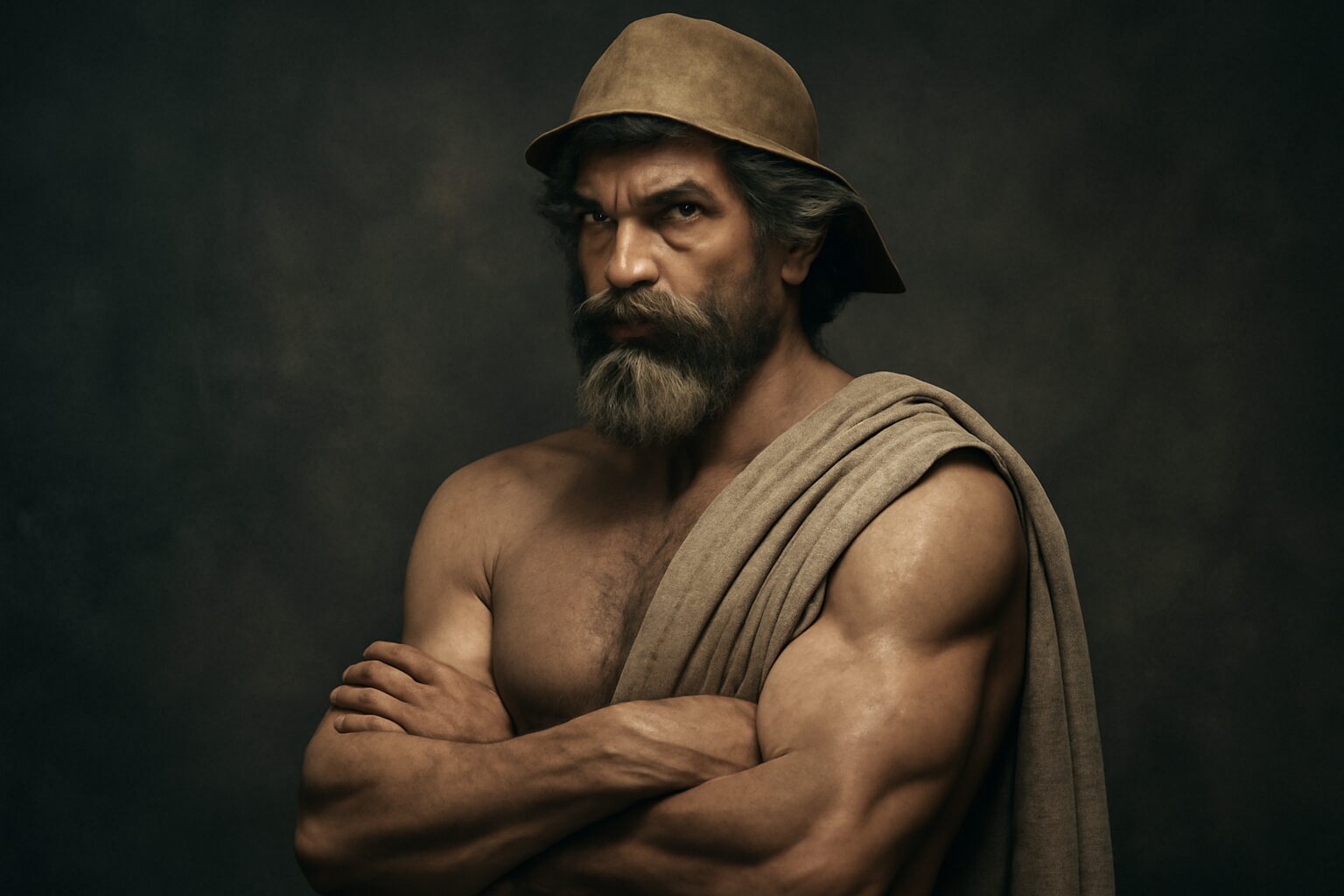Menoetius: The Forgotten Titan of Greek Mythology
In the vast pantheon of Greek mythology, Menoetius stands as one of the lesser-known but fascinating Titans. As the son of Iapetus and Clymene (or Asia, depending on the source), he belonged to the second generation of Titans, the primordial deities who ruled before the Olympian gods. His name, meaning "doomed might" or "ruined strength," foreshadowed his tragic fate.
Role and Powers
Menoetius was associated with violent anger and rash actions, embodying the destructive aspects of brute strength. Unlike his more famous brothers—Atlas, Prometheus, and Epimetheus—Menoetius played a minor role in the myths, but his downfall was significant. He was described as "hubristic" (excessively proud) and was struck down by Zeus during the Titanomachy, the great war between the Titans and the Olympians.
The Titanomachy and Menoetius' Fate
During the Titanomachy, Menoetius fought alongside his fellow Titans against Zeus and the Olympians. His arrogance and violent nature led to his undoing. According to Hesiod's Theogony, Zeus hurled a thunderbolt at Menoetius, casting him into the depths of Tartarus, the darkest abyss of the Underworld, where he remained imprisoned for eternity. Some versions suggest he was not killed but eternally punished, much like his brother Atlas.
Relationships and Legacy
Menoetius was the brother of three more famous Titans: Atlas, who was condemned to hold up the heavens; Prometheus, the cunning trickster who stole fire for humanity; and Epimetheus, who unwittingly accepted Pandora, bringing misfortune to mankind. Despite his obscurity, Menoetius' story serves as a cautionary tale about the dangers of unchecked pride and violence.
Interestingly, Menoetius also had a namesake in later myths—a mortal son of Actor who fought in the Trojan War and was a companion of Patroclus. However, this figure is distinct from the Titan, though the shared name may hint at the lingering cultural memory of the doomed deity.
Significance in Greek Mythology
Though Menoetius is rarely mentioned in surviving myths, his existence underscores the theme of divine retribution in Greek mythology. His punishment by Zeus reinforced the Olympian king's dominance over the old order of Titans. Menoetius' story also highlights the Greeks' belief in the consequences of hubris—a recurring motif in their myths, from Icarus to Niobe.
While overshadowed by his brothers, Menoetius remains a compelling figure, representing the raw, untamed forces that the Olympians sought to control. His fate serves as a reminder that even the mightiest could fall if they defied the will of the gods.
Alternative Names for Menoetius
God Name: Menoites (Greek)
An alternative spelling or variation of Menoetius found in some Greek texts, reflecting dialectal differences or transcription variations.
God Name: None (Roman)
Menoetius does not have a direct Roman equivalent or alternative name in Roman mythology, as he is a distinctly Greek figure, primarily known from Greek myths and not widely adopted or renamed in Roman tradition.
God Name: Menoitios (Greek)
Another variant of the name Menoetius, sometimes used in poetic or literary contexts, showcasing the fluidity of ancient Greek naming conventions.
Tales about Menoetius
The Wrath of Menoetius and the Judgment of Zeus
In the age before the Titanomachy, Menoetius was known for his violent temper and arrogance. During a celestial gathering, he openly challenged the authority of the younger gods, boasting that the Titans could never be overthrown. His hubris reached its peak when he attempted to strike Zeus himself with a thunderous blow, mocking the Olympian's rule.
Zeus, enraged by this defiance, summoned a storm of unparalleled fury. Lightning bolts crisscrossed the sky as the king of the gods declared, "Your rash violence shall be your undoing!" With a single, precise strike, Zeus blasted Menoetius with such force that the Titan was cast into the darkest depths of Tartarus. This act served as a stark warning to other Titans about the consequences of challenging Olympus, establishing Zeus's supreme authority through the punishment of impulsive might.
Menoetius and the Chains of Kratos
After his defeat, Menoetius found himself bound in the underworld by unbreakable chains. The embodiment of strength and power, Kratos, was tasked with ensuring the Titan remained imprisoned. Kratos forged bonds from the core of the earth, each link representing an aspect of divine authority that Menoetius had defied.
As Kratos tightened the final chain, he proclaimed, "Your violent spirit shall be contained by eternal strength." Menoetius struggled against his restraints, his rage echoing through the caverns of Tartarus, but Kratos's power proved absolute. This eternal imprisonment symbolized how raw force, when unchecked by wisdom, becomes its own prison—a lesson embodied by the Titan's endless struggle against the very concept of controlled might.
Frequently Asked Questions
Who is Menoetius in Greek mythology?
Menoetius was one of the Titans in Greek mythology, known as the son of Iapetus and Clymene. He was associated with violent anger and rash actions, which led to his downfall.
What does the name Menoetius mean?
The name Menoetius translates to 'doomed might' or 'defiant strength,' reflecting his rebellious nature and eventual punishment by Zeus.
Why is Menoetius important in Greek mythology?
Menoetius is important as a symbol of hubris and the consequences of defying the gods. His story serves as a cautionary tale about the dangers of unchecked anger and arrogance.
What happened to Menoetius in the myths?
Menoetius was struck down by Zeus with a thunderbolt during the Titanomachy (the war between the Titans and Olympians) and was banished to Tartarus as punishment for his defiance.
How does Menoetius's story apply to modern life?
Menoetius's story reminds us of the importance of self-control and humility. It highlights how destructive unchecked emotions like anger and pride can be, which is still relevant today.













